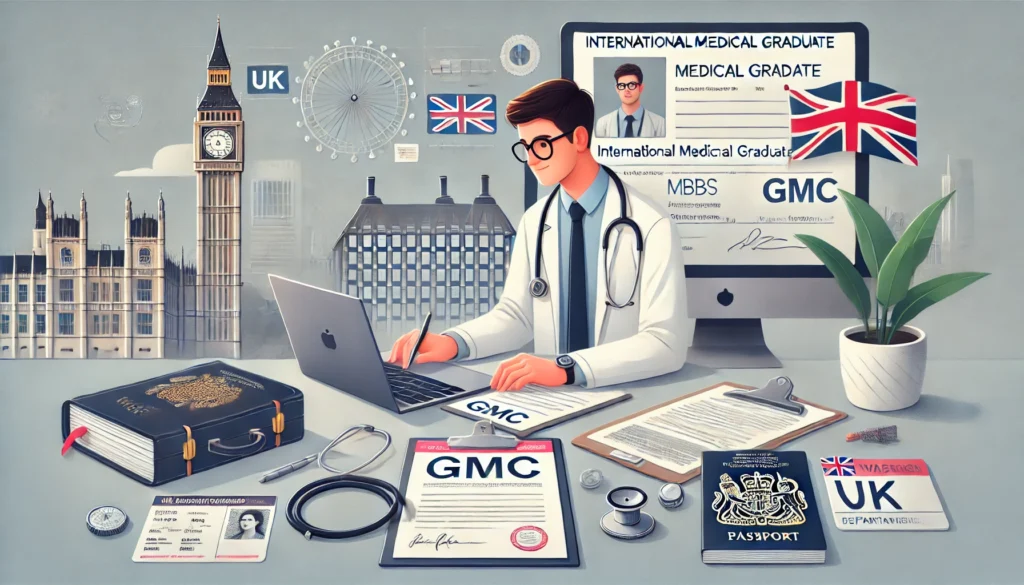Transitioning to the UK healthcare system as an International Medical Graduate (IMG) can be exciting and challenging. While your medical expertise is invaluable, understanding cultural nuances in clinical protocols, patient expectations, and team dynamics is crucial for success. In this guide, we’ll explore key differences in UK healthcare practices, the structure and values of the NHS, and practical tips for building rapport with colleagues and patients quickly.
Why Adapting to UK Healthcare Culture Matters
The UK healthcare system has its own unique culture and expectations. Failing to adapt can lead to misunderstandings, strained relationships, and even professional setbacks.
- Key Takeaway: Understanding UK healthcare practices ensures smoother integration and better patient care.
- Good News: You can thrive in this new environment with awareness and effort.
Key Differences in Clinical Protocols and Practices
UK healthcare operates differently from systems in other countries. Here are some notable distinctions:
1. Patient-Centered Care
- The NHS emphasizes shared decision-making, where patients are actively involved in their treatment plans.
- Example: Always explain treatment options and seek informed consent before proceeding.
2. Evidence-Based Medicine
- NICE Guidelines heavily guide clinical decisions (National Institute for Health and Care Excellence).
- Pro Tip: Familiarize yourself with these guidelines to align with UK standards.
3. Multidisciplinary Teamwork
- Collaboration with nurses, pharmacists, and allied health professionals is central to patient care.
- Example: Attend multidisciplinary team (MDT) meetings to contribute to holistic care plans.
4. Documentation Standards
- Detailed and accurate record-keeping is non-negotiable.
- Important Note: Use NHS templates for consultations and ensure clarity in notes.
Pro Tip: Observe senior doctors during clinical attachments to internalize these practices.
Understanding the NHS Structure and Its Values
The NHS is more than just a healthcare provider, it’s a system built on core principles. Understanding its structure and values will help you navigate it effectively.
1. NHS Structure
- Primary Care: GP surgeries handle initial patient contact.
- Secondary Care: Hospitals provide specialized services.
- Tertiary Care: Highly specialized treatments are available at select centres.
2. NHS Core Values
- Compassion: Treat patients with empathy and respect.
- Collaboration: Work as part of a team to deliver care.
- Equity: Ensure fair access to healthcare for all.
3. Funding Model
- The NHS is publicly funded through taxation, meaning most services are free at the point of delivery.
- Key Takeaway: Be mindful of resource constraints and prioritize cost-effective care.
Pro Tip: Explore the NHS Constitution to better understand its values and principles.
How to Build Rapport with Colleagues and Patients Quickly
Building a strong relationship is essential for success in the UK healthcare system. Here’s how to do it effectively:
1. With Colleagues
- Be Open to Feedback: Accept constructive criticism as a learning opportunity.
- Show Initiative: Volunteer for tasks and demonstrate your willingness to contribute.
- Respect Hierarchy: Understand team roles, but don’t hesitate to ask questions when needed.
2. With Patients
- Use Clear Language: Avoid jargon and simplify explanations for better understanding.
- Practice Active Listening: Let patients express their concerns thoroughly before responding.
- Be Culturally Sensitive: Respect diverse backgrounds and tailor your approach accordingly.
3. General Tips
- Smile and Introduce Yourself: A warm introduction sets a positive tone.
- Follow-up: Check in with colleagues and patients to show you care about outcomes.
Pro Tip: Join local NHS social events or workshops to network and build connections.
Common Challenges and How to Overcome Them
Challenge 1: Navigating Cultural Differences
- Solution: Educate yourself on UK norms and observe how others interact.
Challenge 2: Managing Expectations
- Solution: Clarify expectations with supervisors early on to avoid misunderstandings.
Challenge 3: Adapting to Technology
- Solution: Get comfortable with NHS electronic systems like EMIS or SystmOne through training sessions.
Summary of Key Takeaways
- Clinical Protocols: Embrace patient-centred care, evidence-based medicine, and teamwork.
- NHS Structure: Understand primary, secondary, and tertiary care levels and NHS core values.
- Building Rapport: Communicate clearly, show initiative, and respect cultural diversity.
- Leverage Tools: Stay informed by using resources like the NHS Constitution and training modules.
Take Action Today!
Adapting to UK healthcare culture is a journey, but with the right mindset and strategies, you’ll integrate seamlessly into the NHS.
Now it’s your turn!
- Have you faced challenges adapting to UK healthcare? Share your experience in the comments below.
- Download the UK Medics app for personalized guidance on NHS practices and cultural adaptation.
- Share this post with fellow IMGs who might find it helpful.
Let’s make your transition to UK healthcare as smooth and successful as possible!









